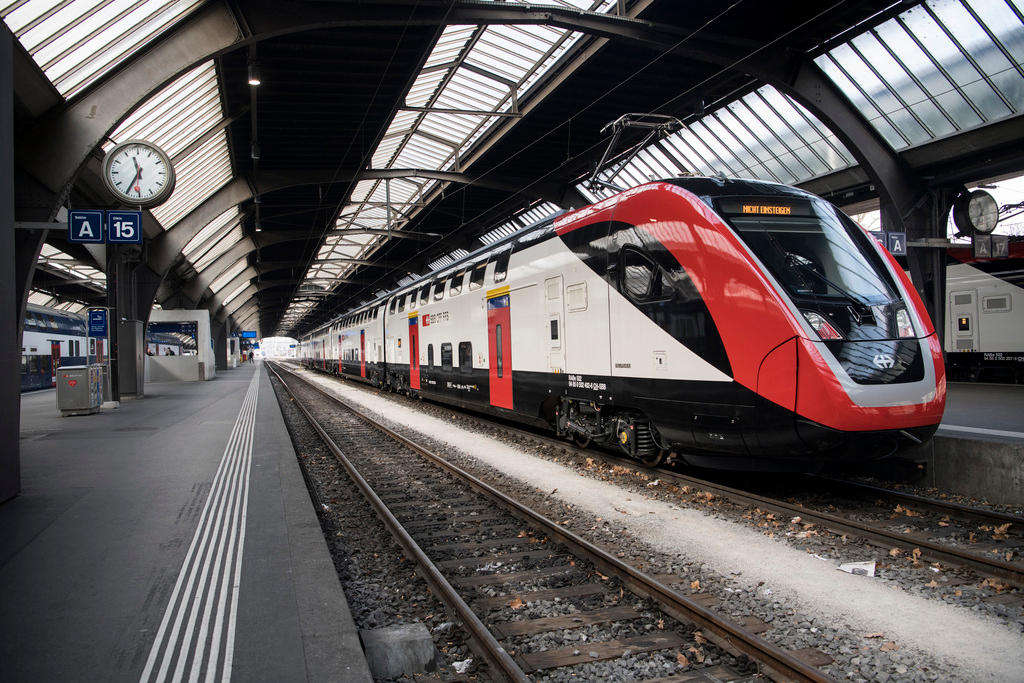
Swiss take the train more often, and further, than European neighbours

The latest Europe-wide figures confirm Switzerland’s reputation as a country of trains, with average trips and kilometres covered per habitant far higher than elsewhere.
Some 72 trips and 2,463 kilometres: this was the average train time for each Swiss resident in 2016, according to Eurostat figures reported Tuesday by LitraExternal link, the Swiss information service for public transport.
This leaves the Alpine nation far ahead of other countries in Europe, with Austria (1,425 km) and France (1,354 km) logging the next-largest distances. Luxembourg (38) and Denmark (37) are the next most frequent.
At the bottom end of the scale (which doesn’t include all European countries; Belgium and Holland, for example, keep their statistics confidential) Irish travellers take the train just nine times annually for a total of 416 kilometres.
The figures represent an increase on the 2015 statistics, with each Swiss citizen travelling 13 times more and 186 kilometres further than that year.
Despite Switzerland regularly being commended for the quality and punctuality of its rail network, the increasing demand doesn’t come without problems: absorbing the influx of passengers on an already dense network is expected to be difficult in coming decades (see below).
Globally, Japan has traditionally been the only challenger to Switzerland’s rail usage, though statistics from the Asian nation have not been included in this study.

More
Trains are taking the strain, even in Switzerland

In compliance with the JTI standards
More: SWI swissinfo.ch certified by the Journalism Trust Initiative

























You can find an overview of ongoing debates with our journalists here . Please join us!
If you want to start a conversation about a topic raised in this article or want to report factual errors, email us at english@swissinfo.ch.